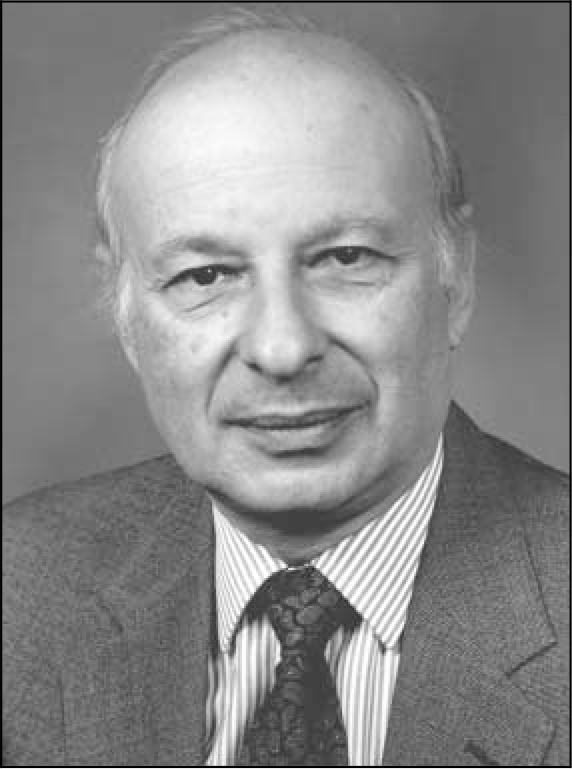Eugene Paykel is Emeritus Professor of Psychiatry at Cambridge University and was until September 2006, Editor of Psychological Medicine. He trained at the Maudsley Hospital. His particular interests are in depression, psychopharmacology, social psychiatry and treatment evaluation.
If you were not a psychiatrist, what would you do?
I was very fortunate because I found my way into what I was best suited to, so I would not change. Like many of my contemporaries I obtained the MRCP, but really I was more interested in my patients than in their physiology. As a student, enthused by English literature and philosophy, I completed one quarter of a modular humanities BA, but then became a busy junior doctor.
What has been the greatest impact of your profession on you personally?
It taught me great respect for a variety of people, how to communicate on their wavelengths and not to give up hope of helping in the long haul, however bleak things may seem.
Do you feel stigmatised by your profession?
Not at all now, although perhaps a little embarrassed socially when I was young. Public and professional attitudes have improved greatly since, and I am entirely upfront about it.
What are your interests outside of work?
My family, music, the theatre, the arts and reading. My mother was a concert pianist and my wife is an active textile artist who teaches others.
Who was your most influential trainer and why?
At the Maudsley, Aubrey Lewis who had a lasting influence on us all, also Douglas Bennett, from whom I learnt an enthusiasm for community psychiatry. I then spent 5 stimulating years in the USA, at Yale University, working with Gerald Klerman. He taught me how to do research and to love it.
What research publication has had the greatest influence on your work?
A pathfinding National Institute of Mental Health (NIMH) collaborative controlled trial in acute schizophrenia, published in 1964, which found several different antipsychotics much superior to placebo, with similar wide therapeutic effects but different side-effects (Archives of General Psychiatry, 10, 246-261). It set me on a path of many controlled trials, of antidepressants, psychological treatments, services, trying to ask clinically relevant questions. But I have been a polymorphous researcher, ranging over life events, epidemiology, community psychiatry, biological psychiatry and heaven knows what else, almost always with colleagues. Psychiatric research can be a most enjoyable group activity.

What part of your work gave you the most satisfaction?
I am retired now but still doing varied academic work. During my career I have enjoyed the mix of activities and intellectual pleasures which can go with clinical academic posts, including clinical work, research, teaching, training and the pleasure of seeing younger people come into their own, writing and editing, even some administration and committee work in the hope of changing things. As a former New Zealander, I have greatly enjoyed international work and friendships.
What did you least enjoy?
The deadening bureaucracy of forms, which has come in the past 15 years to impair good clinical care by dedicated National Health Service clinicians.
What single change would substantially improve quality of care?
Enough money. Mental health services all over the country, built up over many years, are currently being decimated by cuts, and patients and their families will suffer.
Do you think psychiatry is brainless or mindless?
Neither. You can't be a good psychiatrist without recognising the importance of the brain and the mind, and most psychiatrists today do accept that. We don't need to repeat the ancient battles of our forefathers. In my own time, by keeping broad interests, I managed variously to be president of two psychopharmacology associations, one national and one international, and chairman of the College Social and Community Psychiatry Section.
How would you entice more medical students into the profession?
They need to see role models whom they admire, and to understand that the subject has a logical and appealing framework. That is a challenge for their teachers. I worry that the increasing separation of psychiatry from general hospitals will affect our recruitment. Medical students want to be doctors so they need to see that psychiatrists are doctors too.
How would you improve clinical psychiatric training?
I would try to increase flexibility of requirements, so young people can experiment and change their minds without career penalty.
How should the role of the Royal College of Psychiatrists change?
I am a College man, former Council member and Vice-President, proud of being an Honorary Fellow, so perhaps not the best man to ask. I think we do pretty well. Our founders established an open democratic pattern and that needs to be preserved, in spite of temptations to centralise and appoint rather than elect, for efficiency.
What single area of psychiatric research should be given priority?
Treatment research, since it impacts most directly on patients. But then you cannot progress without better knowledge of causes. In my time the greatest causative advances have come in the secure establishment of social factors, including life stress and social support, but the greatest advances in treatment have been in pharmacotherapy, and the recent establishment of cognitive therapy and efficacy of brief psychotherapies.
What single area of psychiatric practice is most in need of development?
We don't have enough availability of psychological treatments, although this is improving. We, as psychiatrists, also need to be able to spend more time with our patients. That means more of us.



eLetters
No eLetters have been published for this article.